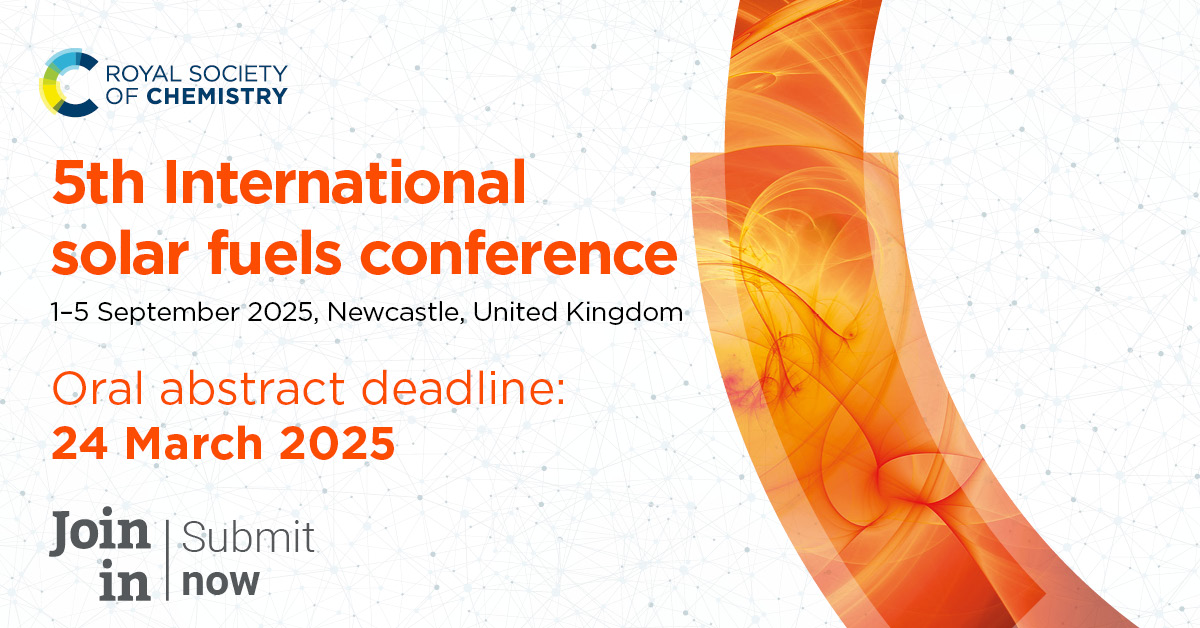
- This event has passed.
5th International solar fuels conference

📍 Newcastle, UK
📅1st – 5th September 2025
You are invited to the 5th International solar fuels (ISF) conference. The first meeting of this internationally renowned conference was held in Uppsala, Sweden in 2015 and since then the meetings have been a highlight for the global solar fuels community. This fifth iteration of the conference is organized by the UK Solar Chemicals Network together with the Royal Society of Chemistry and members of the organising committees.
The 5th ISF conference includes:
- a programme for early-career researchers on 1-2 September
- a full programme with three parallel sessions for all solar fuels researchers 2-5 September
- invited and contributed oral presentations
- networking, poster sessions, social programmes
- panel sessions on careers in chemistry, journals publishing, and more!
1-2 September for early-career researchers (ECRs)
The programme aims to give as many ECRs as possible the opportunity to present through oral and poster presentations. We invite students, post-docs and early-career researchers from around the world, working in all areas of solar fuels research, to submit an abstract, join-in and meet your peers.
2-5 September for all solar fuels researchers
Oral and poster presentation opportunities are available to researchers of all career stages in all areas of solar fuels research from across the world. We invite you to submit an abstract to make your contribution alongside our Plenary and Keynote speakers.
Abstract submission and registration are separate for both parts of the programme. When submitting/registering you will have the opportunity to indicate which programme you are interested in. You may submit to/register for one or both programmes.
Themes
Solar fuels production is the use of sunlight to drive the formation of high energy molecules (e.g. H2, CH3OH, NH3) from abundant feedstocks (e.g. H2O, N2, CO2). The field of solar fuels has the potential to deliver carbon free fuels and chemicals with applications ranging from energy storage, heating, transportation and manufacturing.
Inorganic photocatalysts and photoelectrodes
The discovery and study of inorganic materials and molecules for light driven solar fuels and chemicals production
Organic photocatalysts and photoelectrodes
Devices and catalysts based on polymers and organic molecules
Electrocatalysis for sustainable fuels and chemicals
Advances in experimental and theoretical studies of electrocatalysis in integrated solar to X or power to X pathways. Including but not limited to water splitting, CO2 and N2 conversion
Biological and bioinspired solar fuels approaches
Biological systems, biohybrid systems and bioinspired systems
Advanced methods for the study and discovery of Solar to X materials
Approaches to discovery and mechanistic analysis, fundamental studies of existing materials to high throughput and digitally enabled discovery approaches
Devices to deployment
The science and engineering challenges around developing deployable devices and how they are measured/assessed

 Please find more information about the event
Please find more information about the event